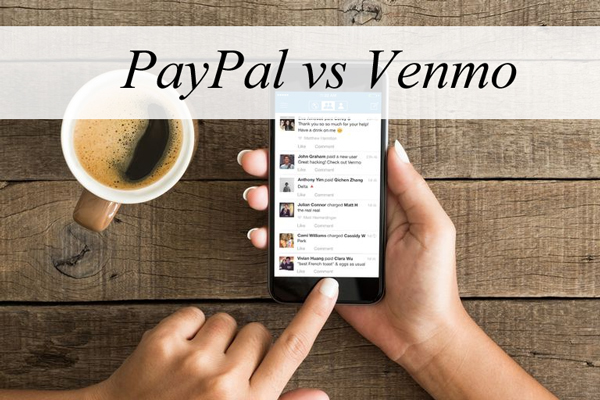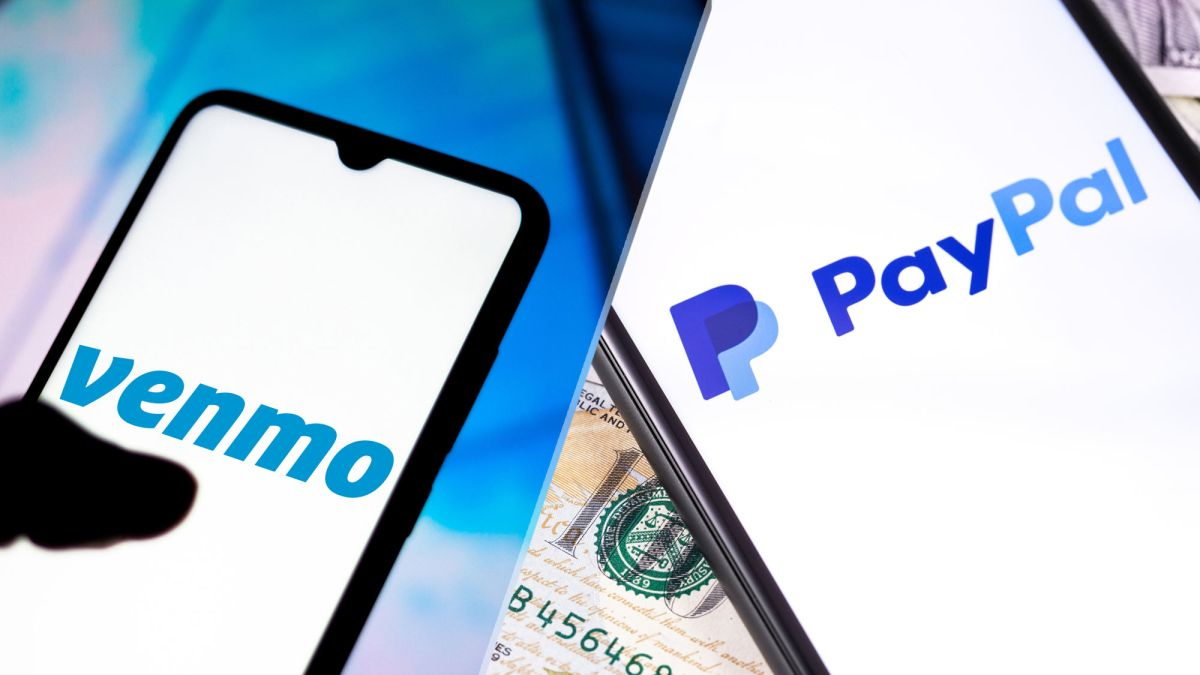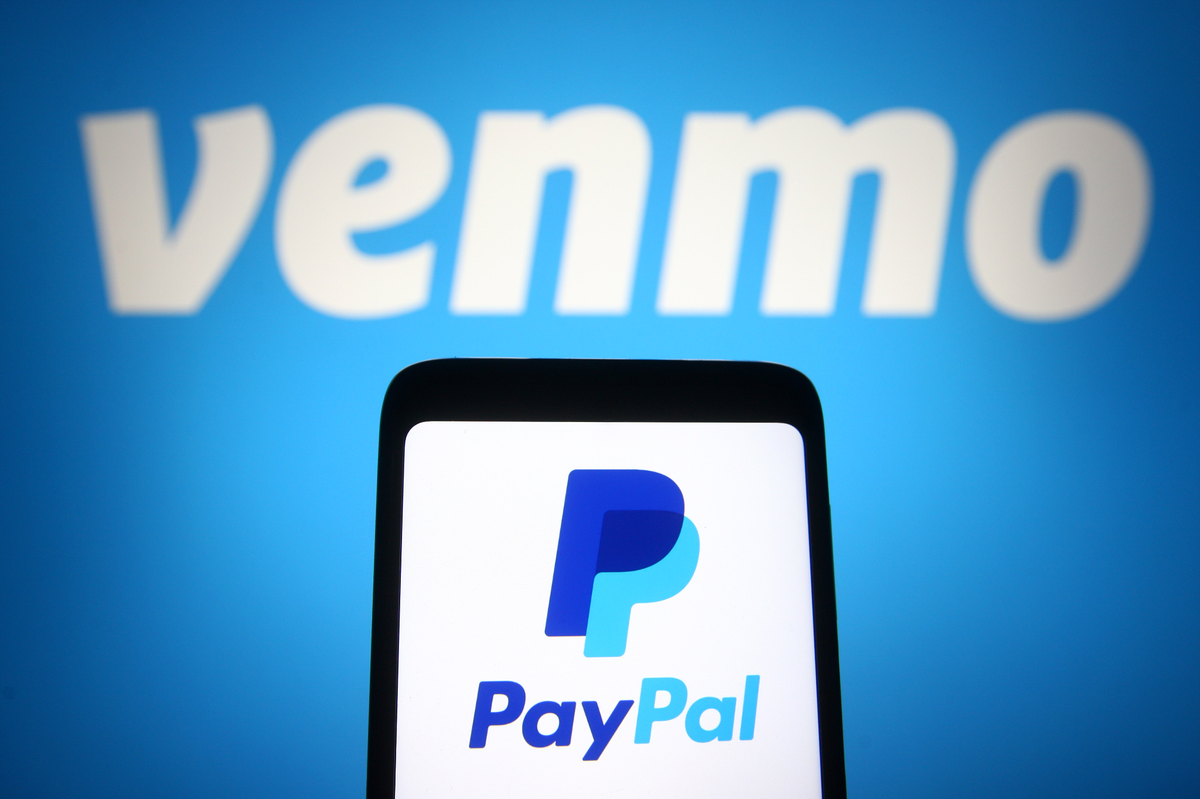Paypal vs venmo questions (quick answers!)
Are you confused about whether to use PayPal or Venmo for your online transactions? Do you wonder which platform offers the best features and benefits? If yes, then you’re not alone. Many people struggle to choose between these two popular payment processing services.

PayPal and Venmo are both widely used payment platforms that offer a wide range of features for making online transactions. However, they have some key differences that can make a significant impact on your decision. Understanding these differences is essential for choosing the right platform for your needs.
This article will provide a quick comparison between PayPal and Venmo to help you make an informed decision. We’ll answer some of the most commonly asked questions about these services and highlight their pros and cons. So, whether you’re a business owner or an individual, keep reading to learn more about PayPal and Venmo.
What are PayPal and Venmo?
PayPal and Venmo are two of the most popular digital payment services available today. Both services let you securely send and receive money from others, making them ideal solutions for shopping online or splitting bills with friends. PayPal is owned by eBay and has been around since 1998, while Venmo is owned by PayPal and has been around since 2009.
PayPal allows users to link their bank accounts or credit cards to their PayPal accounts in order to send money directly to other users or businesses. It’s also widely accepted by many online retailers and merchants worldwide. Venmo is a bit different in that it’s mainly used between individuals for peer-to-peer payments – think splitting the bill at a restaurant or reimbursing someone for movie tickets. It also offers some basic social media features so you can post about your transactions on your public or private profile.
Both services offer easy ways to send money quickly and securely, but there are pros and cons associated with each option. For example, PayPal charges transaction fees when sending money internationally, while Venmo does not. Additionally, Venmo may be faster than PayPal when it comes to transferring funds among friends and family members because there are no processing times involved. Ultimately, which service you choose will depend on what type of payments you need to make and how much flexibility you require.
What Payment Services Do They Offer?
PayPal and Venmo are both popular payment services that offer users different ways to send and receive money. Both services allow you to link your bank accounts or credit cards so that you can easily transfer funds to friends, family members, or businesses. PayPal’s main focus is on facilitating payments between individuals and businesses, while Venmo is mainly used for peer-to-peer payments such as splitting bills with friends.
In addition to the traditional payment options, PayPal also offers some additional features such as its own debit card, which lets you shop online without having to use a credit card. It also allows you to make recurring payments for things like monthly subscriptions. With Venmo, you have access to basic social media features where you can post about your transactions on your public or private profile.
Both services provide secure ways of sending and receiving money quickly, but there are differences in fees associated with each option. While PayPal charges transaction fees when sending money internationally, Venmo does not. Additionally, Venmo may be faster than PayPal when it comes to transferring funds among friends and family members since there are no processing times involved. Ultimately, which service you choose will depend on what type of payments you need to make and how much flexibility you require.

How do PayPal and Venmo Compare?
PayPal and Venmo are both popular payment services for sending and receiving money, but they differ in terms of features, fees, and processing times. PayPal offers a debit card that can be used to shop online without having to use a credit card, and it allows users to set up recurring payments for subscriptions. Additionally, PayPal charges transaction fees when sending money internationally.
In contrast, Venmo does not have transaction fees for international payments, and it may be faster than PayPal when transferring funds among friends or family members due to the lack of processing times. Venmo also has basic social media features which allow users to post about their transactions on either a public or private profile.
Ultimately, which service you choose will depend on your payment needs and how much flexibility you require. Both services provide secure ways of sending and receiving money quickly, so it’s important to compare the different options before making a decision.
Cost and Fees
When making payments, cost and fees can be a major factor in deciding between PayPal and Venmo. PayPal charges transaction fees for international payments, which can add up quickly if you’re transferring money often. Additionally, PayPal charges a fee on most purchases made with its debit card.
In contrast, Venmo does not have any transaction fees for international payments, so it may be the better choice if you’re sending money abroad frequently. Venmo also doesn’t charge any fees when using its service to transfer funds among friends or family members.
Another important thing to consider is the exchange rate when making international payments. Both services offer competitive rates, but PayPal may be more expensive due to its added fees. Ultimately, it’s important to compare all of the costs involved before deciding which payment option is best for you.
What Fees Does PayPal Charge?
PayPal charges a variety of fees for the services it provides. Transaction fees are charged for international payments, as well as most purchases made with PayPal’s debit card. In addition, there is a fee for transferring money from a linked checking account or credit card to your PayPal account.
There may also be currency conversion fees when sending money between countries with different currencies. It’s important to keep in mind that these fees can add up quickly, so it’s best to compare all of the costs involved before deciding which payment option is best for you. Additionally, PayPal may charge other fees depending on the specific payment situation, so always make sure to read through the terms and conditions carefully before using their service.
What Fees Does Venmo Charge?
Venmo charges fees for certain types of transactions, such as international payments. Other services may also incur a fee, like using a credit card to add money to your Venmo balance or sending money from a linked bank account.
Additionally, Venmo may charge a currency conversion fee when transferring money between two different countries with different currencies. It is important to read through the terms and conditions before using Venmo’s service in order to understand what fees you may be charged.
Fortunately, most transactions within the United States are free of fees and many businesses that accept Venmo will not charge any fees either. Therefore, it is important to research all of your payment options carefully in order to find the best solution for you.
Are There Any Other Costs to Consider with PayPal or Venmo?
When it comes to using PayPal or Venmo, there are a few other costs to consider besides the fees. For example, both services charge a fee for currency conversion when transferring money between two different countries with different currencies.
Additionally, if you use a linked bank account to send money on either platform, you may incur additional charges from your bank. Furthermore, if you use a credit card to add money to your balance on either platform, you may also be charged an additional fee by the card issuer.
Finally, some businesses that accept payments via PayPal or Venmo may impose their own fees for using these services. It is important to read through all of the terms and conditions before using these services in order to understand what potential costs you may be incurring.
Security and Privacy
Security and privacy are key considerations when it comes to using PayPal or Venmo. Both services use industry-leading encryption technology to protect user information and transactions.
Additionally, they have implemented additional measures such as two-factor authentication in order to further safeguard user accounts. For added security, both services have also built in fraud protection features that monitor transactions for suspicious activity and alert users if any fraudulent behavior is detected.

In terms of privacy, both services offer users the ability to control who can view their payment history, as well as the option to keep certain transactions private or only visible to specific individuals. As a result, users can be sure that their financial data is safe and secure when using PayPal or Venmo.
Is It Safe to Use PayPal or Venmo for Online Transactions?
When it comes to online transactions, PayPal and Venmo are both safe and secure methods of payment. Both services use industry-leading encryption technology to ensure the protection of user data, as well as two-factor authentication to further safeguard user accounts.
Additionally, each service has implemented fraud protection measures that actively monitor transactions for suspicious activity and alert users if any fraudulent behavior is detected.
Furthermore, both services provide users with the ability to control who can view their payment history, as well as the option to keep certain transactions private or only visible to specific individuals. As a result, customers can be sure that their financial information is secure when using either PayPal or Venmo for online payments.
How Secure Is Each Platform’s System of Encryption and Data Protection?
Both PayPal and Venmo take data protection and encryption seriously and have implemented a variety of measures to ensure the safety of their users’ information. Both services employ high-grade encryption technology to secure user data, as well as two-factor authentication for added security. Furthermore, each platform has fraud protection measures in place that actively monitor transactions for suspicious activity.
Additionally, customers can control who can view their payment history, as well as keep certain transactions private or only visible to specific individuals. To sum up, both PayPal and Venmo offer reliable systems of encryption and data protection that make them safe options for online payments.
Can I Trust My Personal Information With These Companies?
Both PayPal and Venmo take the security of their users’ personal information seriously, offering a variety of measures to ensure that it is safe and secure. Both services employ the highest encryption technology available and use two-factor authentication for added security.
They also have fraud protection measures in place that constantly monitor transactions for any suspicious activity. Additionally, customers can limit who can view their payment history and even keep certain transactions private or visible only to specific individuals. In conclusion, both companies offer trustworthy systems of data protection, making them reliable options for online payments.